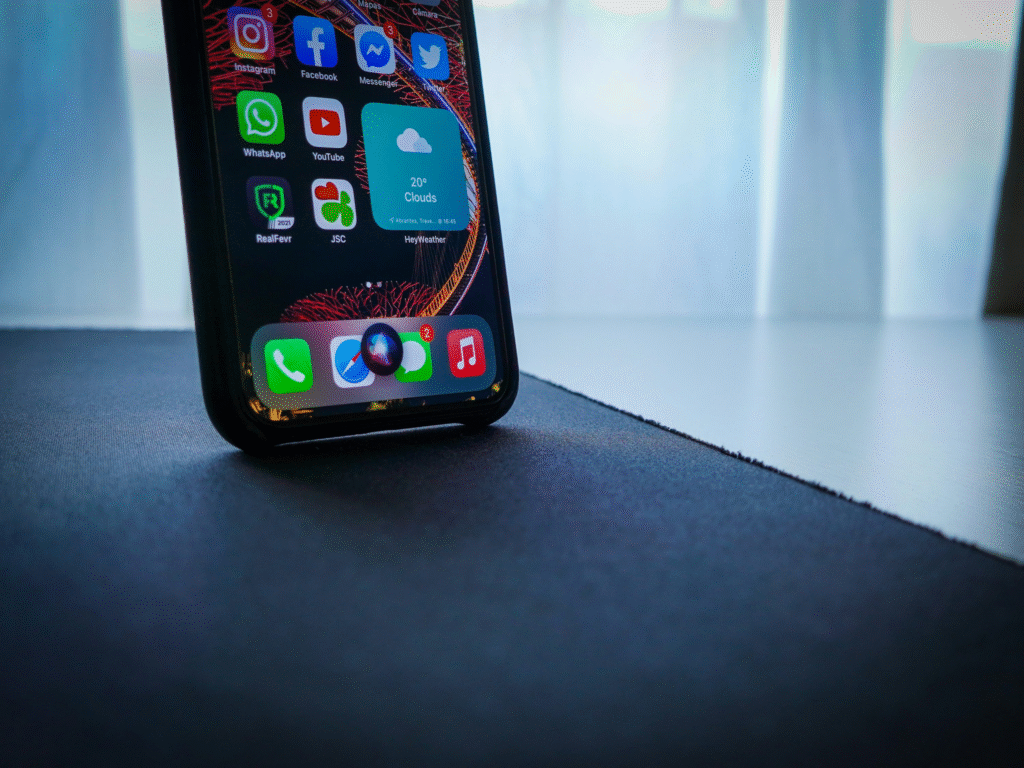Apple employees are reportedly raising concerns about the performance of the new Siri, which is expected to launch with the iOS 26.4 update next year. Despite Apple’s major focus on artificial intelligence, insiders fear that the upgraded Siri might still not meet expectations, sparking tension within the company’s AI teams.
“Technology is best when it works effortlessly.” That’s what many Apple fans believe. But lately, things haven’t been so effortless at Apple — especially when it comes to Siri, the voice assistant millions use every day. According to reports, several Apple employees have raised red flags about the upcoming Siri revamp, expected to arrive with the iOS 26.4 update next year.
Over the last few years, artificial intelligence has become a major talking point in the tech world. Companies like Google, Microsoft, and OpenAI have raced ahead with powerful AI tools and smart assistants. But Apple, known for its sleek products and privacy focus, has struggled to keep up. The company’s AI journey has been slower than many expected, and it has faced criticism for being late to the “AI party.”
Apple introduced its own AI platform called “Apple Intelligence”, but many of its promised features were delayed or not ready when the iPhone 16 series hit stores last year. While other companies were showing off their advanced AI models and chatbots, Apple seemed to be taking a more cautious — some might say slower — approach.
Originally, the new and improved Siri was supposed to arrive with the iOS 18.4 update last year. But that didn’t happen. The rollout was quietly pushed back by a year. Apple later confirmed the delay, saying the update didn’t meet their quality standards. This move disappointed many iPhone users who had been eagerly waiting for Siri to finally match the intelligence of other AI assistants.

Craig Federighi, Apple’s Senior Vice President of Software Engineering, even admitted earlier this year that the revamped Siri wasn’t ready for launch. He reportedly said that the system “did not achieve the necessary quality check inside the company.” He also added that the team hoped to make it ready for release in 2026. That was an honest admission, but it also showed how much pressure Apple’s engineers are under.
Now, as the iOS 26.4 update gets closer, the new Siri is said to be just about six months away from being introduced to users. But the worries haven’t gone away. According to Mark Gurman, a well-known Bloomberg reporter who closely follows Apple’s internal developments, engineers are still uneasy about how Siri performs. In his weekly Power On newsletter, Gurman wrote, “I strongly believe there will be more senior members of the company’s AI ranks hitting the exits soon, especially if the new Siri coming in the spring falls flat. Already, there are concerns from people testing iOS 26.4 — the OS version slated to include the new Siri — about the voice assistant’s performance.”
That quote from Gurman paints a clear picture: even Apple’s own insiders aren’t fully confident about Siri’s upcoming version. It’s not that Apple hasn’t been working hard on it — the team behind Siri has spent years improving how it understands language, tone, and context. But with the rise of smarter AI tools like ChatGPT and Google’s Gemini, expectations are now much higher.
Siri’s biggest problem, according to many experts, is that it has not evolved much since its launch in 2011. While competitors have added natural conversation styles and complex reasoning abilities, Siri still struggles with long or tricky questions. The new version is supposed to fix that by using advanced AI models that can understand user intent more deeply. However, it seems those changes are not yet working perfectly.
Inside Apple, things are reportedly tense. Several engineers from Apple’s foundation models team — the group responsible for developing the company’s core AI models — have already left. Most of them have reportedly joined Meta, which recently created a new research group called Meta Superintelligence Labs. This group focuses on pushing AI development beyond today’s limits. Losing key members to competitors like Meta only adds more challenges for Apple.
There’s also another internal debate going on within Apple: should the company build all its AI models in-house, or should it collaborate with others like Anthropic or Google? Developing in-house AI gives Apple more control and privacy, which fits its brand identity. But it also takes more time, resources, and talent — something that Apple might be short on, especially with so many engineers leaving. On the other hand, using external models could help them move faster, but it might come at the cost of Apple’s strict privacy standards.
For years, Apple has been known for doing things differently — carefully and privately. It doesn’t release half-ready products. Every iPhone, iPad, or Mac that hits the market usually works smoothly from day one. That’s why the Siri situation is so surprising to many people. Apple has always focused on perfection, but the current delays show that even the biggest tech companies struggle when it comes to complex technologies like AI.
Still, there’s hope. Apple’s strength has always been in turning complicated technology into something simple and user-friendly. The new Siri is rumored to include features that make it more personal and context-aware. It might be able to understand what’s on your screen, summarize emails, schedule meetings, and even respond in more natural language. If Apple manages to make these features work well, it could be a big step forward.
However, the timing is crucial. The tech world moves fast, and by 2026, AI tools will be even more advanced. Apple cannot afford to fall behind again. Users expect more than just a voice assistant — they expect a true AI companion that feels human and understands emotions, tone, and context.
At the end of the day, the story of Siri’s revamp is about more than just one feature. It’s about Apple’s larger challenge — staying relevant in an AI-driven future. For over a decade, Apple has led the world in design and innovation. Now, it must prove that it can lead in artificial intelligence too.
As one Apple insider reportedly said, “The world’s expectations from Apple are always high — maybe that’s both our biggest blessing and our biggest challenge.”
Only time will tell if the new Siri can live up to those expectations when it finally arrives with iOS 26.4 next year. But one thing’s certain: millions of iPhone users around the world will be watching — and listening — very closely.








